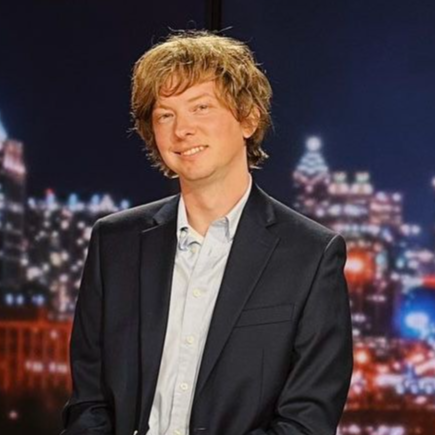Kyle Muller working to join Braves’ pitching barrage

They don’t check your I.D. in the big leagues.
Kyle Muller is vying to become the next youthful starter to grace the Braves’ ensemble. Mike Soroka, Touki Toussaint, Kolby Allard, Kyle Wright and Bryse Wilson, among others, already have tasted the majors.
Muller, who turned 21 last month, certainly looks the part: The hard-throwing, Texas-born lefty stands at 6-foot-6, 225 pounds. He just finished his season at the Arizona Fall League, where he made seven relief appearances and qualified as an AFL All-Star.
“It’s been great,” Muller said. “Being able to meet some guys on the other teams and just see how they do it in their organization. Obviously the baseball world is a big world, but it’s a small world at the same time. So you see some guys you’ve been with or played against growing up. Just making new relationships that way and playing against some of the best competition the other day. Can’t beat it.”
After pitching 139-2/3 innings across three levels, the Braves pondered if Muller should even go to Arizona. Ultimately he went as a reliever, striking out 15 and walking eight in 10-2/3 innings for champion Peoria.
“We debated even him going out there,” general manager Alex Anthopoulos said. “So a big part of it is just to continue his development, continue his exposure. He had a great year for us.”
In the All-Star game, Muller allowed two hits and a run, striking out two, in his lone frame. He surrendered two earned runs in his final appearance, but otherwise permitted only one across his other six non-exhibition outings. Four of those appearances exceeded an inning.
Note that manager Brian Snitker subscribes to ushering in prospects through the bullpen. Each of the youngsters who appeared in 2018, aside from Soroka, at some point worked in relief.
“Coming out of the ’pen, it’s a bit of a different animal,” Muller said. “It shows you that a lot of the stuff, the superstitions you have as a starter, you don’t really need. Sometimes you just have to go in – you might get the seventh, you might get the fifth. You don’t really know exactly what time you’re going in. So just learning how to deal with that, and obviously it’s something good for the future, being comfortable in that type of situation.”
It was more about process than results for Muller, who posted a 3.10 ERA over his first 29 innings with Double-A Mississippi last season. His command is spotty, as with most developing pitchers, but the repertoire is there for heavy strikeout numbers.
Muller wants to command his pitches better, hoping his fastball and off-speed throws can complement each other. It’s the usual challenge for developing arms – and often the one to make or break them.
In Muller’s case, the command determines his ceiling. He’s a similar case to Mike Foltynewicz and Sean Newcomb, who harnessed their abilities and reached the majors, the former achieving All-Star status.
“Just get more consistent with my pitches,” Muller said. “Command my fastball better, because that sets up all my off-speed. Spin the curveball better, get more consistent with change-up. But mostly it’s being able to throw off-speed for strikes and then throw the fastball where you want it.”
Before Muller left for Arizona, he talked with Soroka, who was rehabbing at instructional league after his season was cut short by shoulder inflammation. Muller consulted Soroka about going from Single-A to Double-A, Double-A to Triple-A and how to handle the majors.
“He said you have to be better with your misses,” Muller recalled. “It’s the same game, you just have to know who you are as a pitcher when you get there.”
Soroka, who’s only a few months older than Muller, was one of many Braves who excelled through the minors. He, Allard and Wilson debuted at 20 years old. Wright cracked the bigs just over a year after he was drafted out of Vanderbilt.
The Braves reward those who produce, regardless of age. It worked well for them last season, rebounding from three consecutive 90-loss campaigns to win the National League East. It wouldn’t be senseless to think Muller contributes to the 2019 team if he progresses accordingly.
He’s aware his goals are within reach. A promotion to Double-A is often a realization step: Muller isn’t there yet, but he saw many in his position ascend from Mississippi to Atlanta in even less than a year.
Muller draws motivation from the wise words of Dom Chiti, the organization’s director of pitching who’s played an integral, yet somehow under-the-radar role in the franchise’s pitching renaissance. Braves pitching prospects often reference Chiti when elaborating on their mindsets and growth.
And it was his advice that Muller remembers as he strives to extend the lineage of fledgling Braves pitchers in the majors.
“They don’t check your I.D. when you get to the big leagues,” Muller said, remembering Chiti’s counsel. “That’s something he’s been preaching to us the last couple years. And they’re acting upon it, which is incredibly encouraging as a player. You know you can do what you need to do and you’ll be rewarded for it.”



